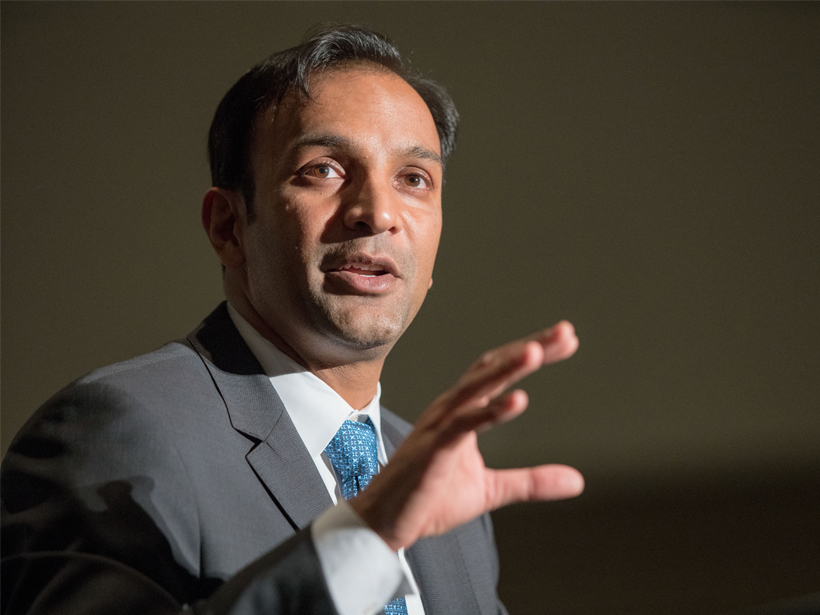The Earth and space sciences produce some of the best data scientists, and they need to stay in these fields, according to the chief data scientist at the White House Office of Science and Technology Policy (OSTP). “We have to make sure that the efforts and energy that everyone is doing here continues to benefit what is most important of all, which is the scientific understanding of our Earth, our climate, and how we interact as a species with our environment,” DJ Patil said on Monday at the American Geophysical Union’s (AGU) Fall Meeting in San Francisco, Calif.
Patil, who formerly held positions as a data scientist in industry and academia, said that some of his favorite hires were geoscientists. A Ph.D. mathematician, he used open data sets published by the National Oceanic and Atmospheric Administration to improve numerical weather forecasting when he was a student and faculty member at the University of Maryland.
“The conversation is not ours right now, whether it’s on climate or anything else,” Patil said.
All geoscientists also are data scientists by virtue of working with data, Patil said, urging them to learn how to use data more effectively to “take back the conversation on some key scientific issues.” “The conversation is not ours right now, whether it’s on climate or anything else. We have people that are arguing against us, not on scientific merit, not on any data. It’s on a thought basis that is not grounded in any form of reality,” said Patil.
Some measures that would help, he said, include figuring out how to create science role models and raising the profile of scientists. “We need to create the celebrities of climate and data and oceanography and all the other things that are happening here [at the meeting], because if we don’t we will continue just to lose the conversation over and over again,” he said.
Using Data to Communicate Better
“The best data products in the world aren’t trying to give you more information,” he added. “The best data products in the world facilitate an end goal.”
Patil said scientists also need to learn how to use data to communicate better, whether to tech-savvy people or to the general population. He said that one of the best examples of data science, and a brilliant example of communication, is the icon in weather apps that might be a happy face for a sunny day or an angry face with lightning bolts when the forecast calls for rain.
“We have taken all this science and everything and distilled it to an icon. On one side, we go ‘that’s embarrassing, that’s horrible.’ On another aspect, we go ‘Oh my God, that’s brilliant’ because that icon provides key information and suggests what action to take and how to feel about the weather.”
“The best data products in the world aren’t trying to give you more information,” he added. “The best data products in the world facilitate an end goal.”
Patil also said that data science training should include a focus on ethics. “The power which we have and what we can do with data: just because we can doesn’t mean we should,” he said. “We have to start taking responsibility [for] everything that happens as a result of the data, because we command that much power.”
Recent White House Data Initiatives
Patil, who is also deputy chief technology officer for data policy at OSTP, highlighted some recent White House initiatives, including a 2013 memorandum on an open data policy and an executive order making the new default for government information to be open and machine readable.
A draft Common Framework for Earth-Observation Data is open for comments until 15 January 2016. Patil said the framework will be “the foundational pinning of how we get to make this data interoperable.”
—Randy Showstack, Staff Writer
Editors’ note: AGU has long maintained a position statement on data. “Earth and Space Science Data Should Be Widely Accessible in Multiple Formats and Long-Term Preservation of Data Is an Integral Responsibility of Scientists and Sponsoring Institutions” was last revised and reaffirmed in February 2012.
Citation: Showstack, R. (2015), White House data chief stresses benefits of better communication, Eos, 96, doi:10.1029/2015EO041789. Published on 15 December 2015.
Text © 2015. The authors. CC BY-NC 3.0
Except where otherwise noted, images are subject to copyright. Any reuse without express permission from the copyright owner is prohibited.

